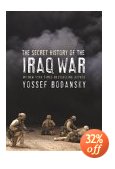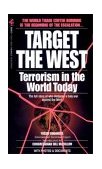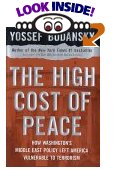|
| Home | About Kashmir Herald | |
Volume 4, No. 2 - August 2004 |
|
| Featured Article |
|
|
|
The US Code of Silence on Pakistan The Bush administration has, at least in public, shown practically zero curioisity about a series of events in Pakistan that should have been huge red flags after 9/11. Lt. Gen. Mahmud Ahmed, head of ISI during 9/11, has been reportedly linked to the funding of those terror attacks, and turned out to be an informal advisor to the Taliban. But he was allowed to quietly go into retirement, and in fact is now reported to be the head of a corporation that is connnected to the Pakistani military. Ahmed is also reported to be part of an oligarchy, which includes such pro-jihadi stalwarts such as Hamid Gul, that has significant influence over the Pakistani regime. This may explain why Pakistani support as the "front-line ally in the war on terror" has always been spotty and grudging. Under intense pressure (usually and suspiciously coincident with the Bush administration's need to produce results for the domestic audience), Pakistan produces a high value target (HVT) or two. After the Daniel Pearl killing, when the spotlight was on the ISI's links to Al Qaeda, Abu Zubaidah was captured. In the run up to the Iraq invasion, when questions were being raised on whether the Afghanistan-Pakistan phase had been sufficiently resolved, Khalid Sheikh Mohammed was snared. The New Republic, reported a few weeks ago that Pakistan was being pressured to produce some HVTs to coincide with John Kerry's acceptance at the Boston Democratic convention. As if on cue, an Al Qaeda suspect was reported captured by Pakistan just hours before Kerry spoke. Does the Bush administration stay mum on Pakistan because it can
produce, almost at will, HVTs? That is what the major media sources
believe, often appending to their stories on this topic a phrase such
as "... the United States needs Pakistan's help in the war on
terror...". But given the speed with which the US could march into
Iraq, Far more likely is another potential explanation, one that is considerably more complex than the standard single phrase rationale offered in the media. Two agendas converged in the immediate aftermath of 9/11, both of which required guaranteeing that the rug would not be pulled from under Pakistan. One was the neo-conservative agenda to remake the Middle East. For this Iraq needed to be attacked, with subsequent steps in other Middle Eastern nations. If any top administration official even said one sentence about the unreliability of Pakistan, the entire media establishment, Congress, and others would have followed the lead, and questioned the logic for the Iraq invasion. The other agenda is not unique to the neo-conservatives, it has been an
unspoken policy since the end of the Cold War - balancing India with
Pakistan. This policy is even more relevant now, when the US grand
strategy openly calls for slowing down the rise of regional powers.
After all Pakistan has kept hundreds of thousands of Indian troops tied
down in Kashmir for more than a decade. Unmasking Pakistan's links to
Al
Qaeda and an open inquiry into its nuclear proliferation activities
would at the very least likely result in international action to remove
its nuclear weapons, leaving India the uncontested power in the
subcontinent, and one that could accelerate expansion of its military If the United States enhances its national security as a result of
these
apparently convoluted maneuvers in protecting Pakistan, then such a
strategy is understandable and defensible. But has sufficient attention
been given to the cost-benefit implications? Has sufficient attention
been accorded to risk likelihood's? What if the Middle East strategy
turns out to be a pipe dream and only results in a near unanimous
anti-US sentiment in that region, which seems to be happening now? What
if the jehadi supporters in the Pakistani military and ISI are playing
a
waiting game, looking for a suitable opportunity to strike against the
west? What if the Pakistani nuclear proliferation network, which
remains
incompletely understood, is willing to offer nuclear weapons to
terrorist groups? There are so many known unknowns, and unknown
unknowns |
 |
 |
 |
|
|
Archives
| Privacy Policy |
Copyrights
|
Contact
Us | |
||